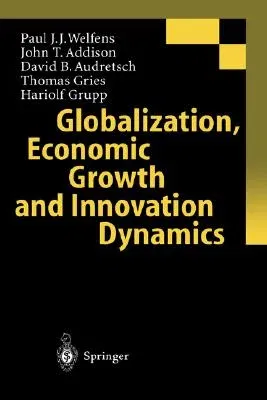Paul J J Welfens
(Author)Globalization, Economic Growth and Innovation Dynamics (1999)Hardcover - 1999, 19 October 1999

Qty
1
Turbo
Ships in 2 - 3 days
In Stock
Free Delivery
Cash on Delivery
15 Days
Free Returns
Secure Checkout

Print Length
198 pages
Language
English
Publisher
Springer
Date Published
19 Oct 1999
ISBN-10
3540658580
ISBN-13
9783540658580
Description
Product Details
Book Edition:
1999
Book Format:
Hardcover
Country of Origin:
DE
Date Published:
19 October 1999
Dimensions:
23.39 x
15.6 x
1.27 cm
ISBN-10:
3540658580
ISBN-13:
9783540658580
Language:
English
Location:
Berlin, Heidelberg
Pages:
198
Publisher:
Weight:
476.27 gm